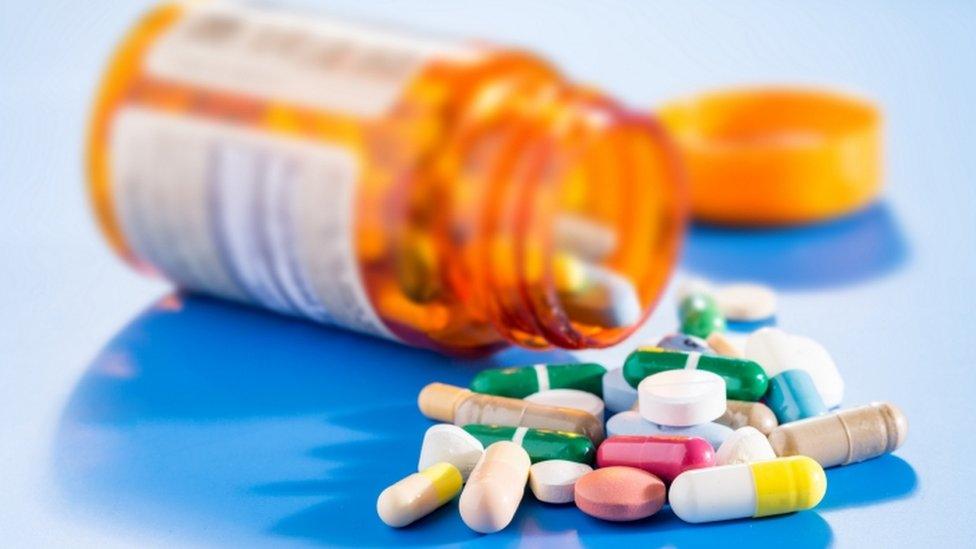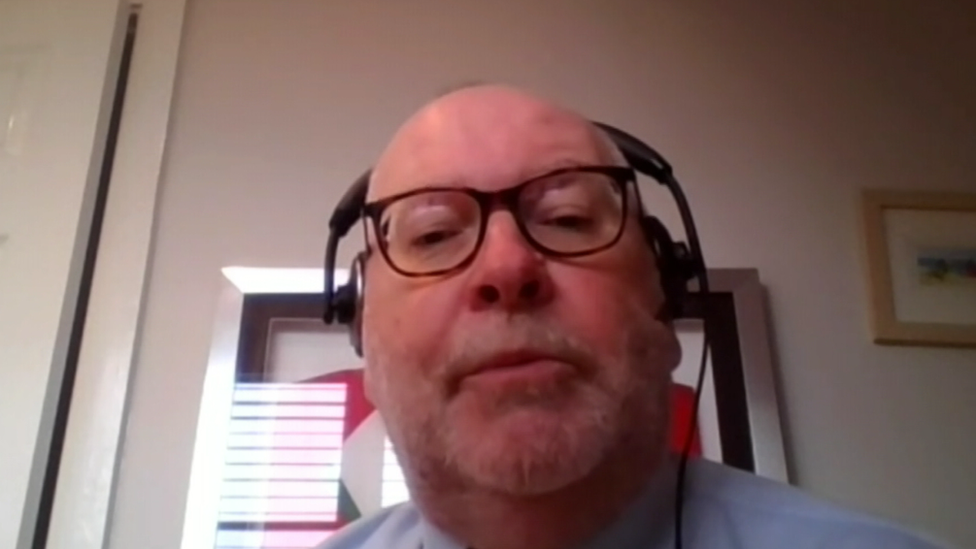Medicine supply chains to change post Brexit, MPs told
- Published
- comments

MPs heard on Wednesday that in the future it is likely more medical drugs will be brought into Northern Ireland directly from Europe
Supply chains bringing medicines into Northern Ireland will change "significantly" after Brexit, MP's have been warned.
They were also assured there will be no disruption to the availability of drugs and the current safety standards will be maintained.
Members of the Northern Ireland Affairs Committee heard evidence on Wednesday from the pharmaceutical industry.
It focused on the impact of Brexit on the supply of medical drugs.
They were told at present 80% of drugs come into Northern Ireland from Great Britain through the ports, but that in the future medicines are likely to be "shipped in directly from Europe".
Dr Richard Greville, director of distribution and supply with the Association of the British Pharmaceutical Industry told MP's nothing will change until the end of next year.
This is due to a one year "phasing in" period agreed between the UK and EU.
'Ducks in a row'
Under the protocol. Northern Ireland will stay under the EU regulatory regime for medicines following the end of the transition period.
"This extra time is particularly helpful and useful for everybody to get their ducks in a row to ensure continuity of supply in Northern Ireland," said Dr Greville.

Dr Richard Greville told the Northern Ireland Affairs Committee that the availability of drugs would not change as a result of Brexit
"It gives the appropriate and sufficient time to change supply chains, because those supply chains will need to be changed significantly."
He added: "It may be that in future that companies, manufacturers would need to make contractual arrangements with wholesalers not necessarily the ones that they currently use in GB, but may choose to distribute via for example through the Republic."
Dr Greville told MP's that medicines sold in Northern Ireland will have to carry a unique identifier under EU regulations which protect against counterfeit drugs.
But packs of medicines produced in Great Britain will not have the "obligation of using this unique identifier".
"So basically what I'm saying is that in the future, Northern Ireland will have to be supplied with packs of medicines that are compliant, if not from GB from other parts of Europe," said Dr Greville.
"That is part of the work that individual companies will have to work through next year."
He stressed there will be no "impact in terms of quality of patient safety".